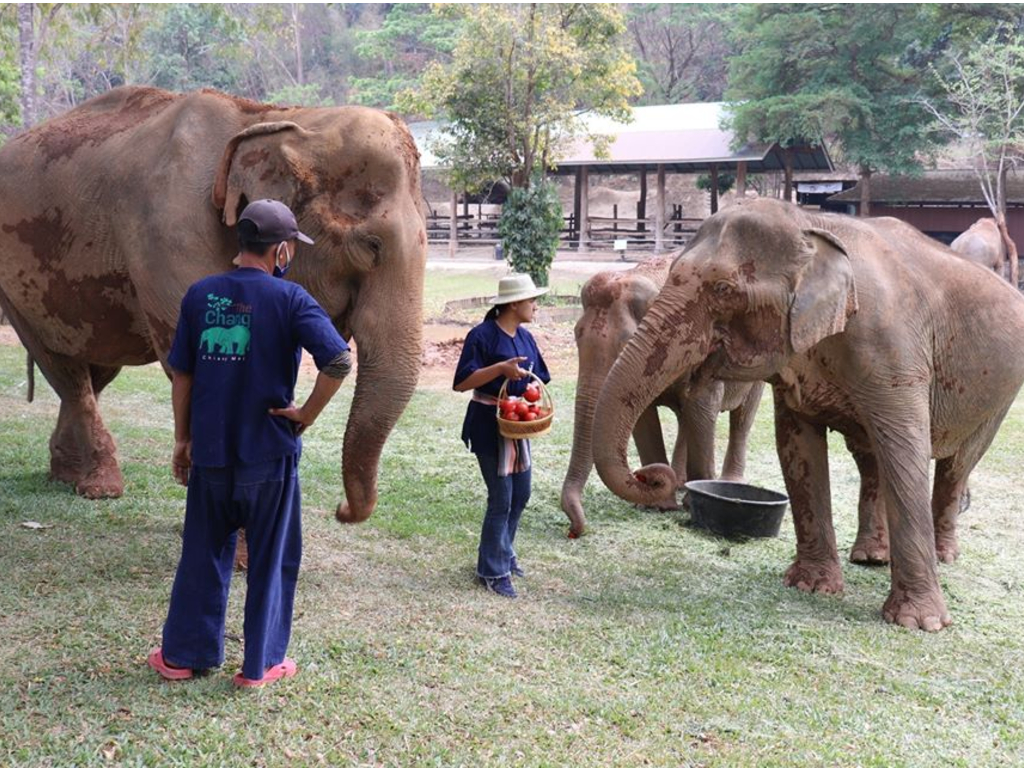The novel coronavirus outbreak has brought tourism to a screeching halt, freeing dozens of Thai elephants from their task of carrying around visitors.

Chiang Mai park Maesa Elephant Camp temporarily closed down on Thursday amid the COVID-19 recommendations from local government.
The park shared the news in a Facebook post, written in Thai, that says it has 78 elephants to care for. It asks for donations to be made to the Elephant Conservation Foundation in Bangkok.
The camp, which has typically offered the controversial tourist activity of elephant riding, has been forced to remove the seats from elephants’ backs and reach out to the public for donations.
While some Facebook users commenting on the camp’s Facebook page are happy that the animals get a well-deserved break, the closure means no income is being generated for the park.
The post goes on to say that the camp typically imports Napier grass, Yaemong grass and corn plants to feed the animals. Seven cars, filled with 2,000 to 3,000 kilograms per vehicle, arrive daily with food.
It costs around CA$1,500 (35,000 Thai baht) per day to care for the elephants, the post reads, in addition to the cost of paying their 350 workers.

Get daily National news
It remains to be seen if the park will choose to allow tourists to ride its elephants again when the lockdown is over.
With the sudden spread of COVID-19, Thailand’s tourism industry has been hit hard.
Last year, 39 million people visited Thailand, bringing in more than US$60 billion — one-fifth of the country’s national income, the BBC reports.

Over 10 million of those were Chinese tourists. When the city of Wuhan was locked down on Jan. 23, Thailand immediately felt the impact. It’s believed nearly 25,000 people are out of work.
“At the peak two years ago we carried 1,000 clients a day,” Nattakit Lorwitworrawat, a Phuket island resident who owns a business that takes tourists to and from the offshore islands, told the BBC. “Today if we get 200 clients, that is considered very good. We would be very happy with that.”
Thailand is currently dealing with more than 1,000 cases of the new coronavirus.
—
Questions about COVID-19? Here are some things you need to know:
Health officials caution against all international travel. Returning travellers are asked to self-isolate for 14 days in case they develop symptoms and to prevent spreading the virus to others.
Symptoms can include fever, cough and difficulty breathing — very similar to a cold or flu. Some people can develop a more severe illness. People most at risk of this include older adults and people with severe chronic medical conditions like heart, lung or kidney disease. If you develop symptoms, contact public health authorities.
To prevent the virus from spreading, experts recommend frequent handwashing and coughing into your sleeve. They also recommend minimizing contact with others, staying home as much as possible and maintaining a distance of two metres from other people if you go out.
For full COVID-19 coverage from Global News, click here.
—









Comments
Want to discuss? Please read our Commenting Policy first.